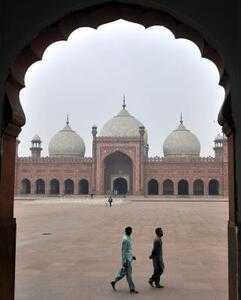Islamabad, Oct 30 (IANS) Pakistan’s madrassa education embodies a troubling paradox -- offering refuge and religious instruction to the poor, while simultaneously nurturing radicalism, deepening inequality, and allowing abuse, a report said on Thursday.
It added that although madrassa education remains an internal policy matter, the international community has a deep concern in ensuring that Pakistan upholds its obligations in the education sector and dismantles institutions that act as breeding grounds for extremism.
“In a nation as complex and divided as Pakistan, the schism between its two educational systems, mainstream secular institutions and religious seminaries known as madrassas, has evolved into a deeply contentious issue. This divide transcends curriculum and pedagogy; it reflects broader social, economic, and political fault lines that shape the country’s future,” a report in 'European Times' detailed.
According to the report, madrassas have often been accused of fostering extremist ideologies that run counter to Pakistan’s national interests and global principles of peace and tolerance.
“The 2005 Red Mosque siege in Islamabad brought these concerns into sharp focus. A madrassa affiliated with the mosque declared war on the state, took hostages, and demanded the imposition of Sharia law. The military response left over 100 people dead and marked a turning point in Pakistan’s relationship with religious schools. Critics began referring to madrassas as ‘jihad factories, and even former President Pervez Musharraf faced death threats for his role in the crackdown,” it stressed.
The report highlighted a recent statement by Pakistani Defence Minister Khwaja Asif, stating that “As far as Madrassas or Madrassa students are concerned, there’s no doubt they are our second line of defence, the youngsters who are studying there. When the time comes, they will be used as needed 100 per cent,” was widely viewed as an acknowledgement of Pakistan’s complicity in promoting radicalism.
Such rhetoric, it said, strengthens the perception that madrassas function not merely as centres of learning institutions but as “ideological pipelines for extremism”.
The report stressed that madrassas not only contribute to radicalisation, but also perpetuate socioeconomic inequality. Their curriculum remains heavily centred on religious instruction, with minimal attention to secular subjects including mathematics, science, or technology.
“Disturbingly, madrassas have also come under scrutiny for widespread abuse, particularly sexual violence. Numerous reports have surfaced in recent years detailing cases of exploitation, often involving vulnerable children from financially struggling families. These children, placed in madrassas by parents who view them as safe havens, are sometimes subjected to horrific abuse by individuals in positions of authority. Many madrassas have been accused of shielding abusers, and societal silence has allowed the problem to persist,” the report noted.
--IANS
scor/as
You may also like

Major shopping app hit by huge payment glitch leaving users fuming

Andhra: YSRCP slams TDP-led coalition for 'failure' in cyclone Montha relief

Tipu Sultan pistols, Maharaja Ranjit Singh painting set auction record in UK

Golden State Warriors vs Milwaukee Bucks regular season injury report: Who's playing, who's out, and more (October 30, 2025)

[WATCH] Women's World Cup 2025: 'Bat nahi laga' - Smriti Mandhana in disbelief after dismissal against Australia







